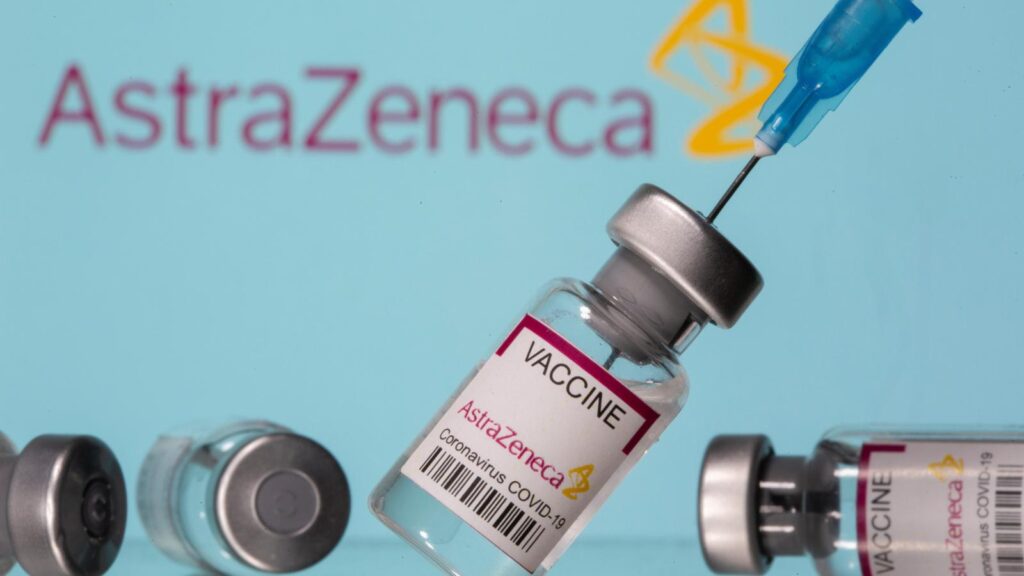Over the recent months, many countries imposed restrictions on AstraZeneca vaccinations. This was due to multiple cases of severe brain thrombosis that occurred in temporal connection with the vaccination. The European Medicines Safety Agency (EMA) was supposed to investigate whether there was also a causal connection. Meanwhile, it has concluded that the vaccine is probably indeed the cause of the thromboses. However, it continues to recommend the vaccine without restriction.
The reason: It claims that the vaccine is effective and safe, and that the benefits far outweigh the risks. In the meantime, some European countries like Germany follow the recommendation of the Standing Commission on Vaccination (STIKO) to use the vaccine only in people older than 60 years.
In the meantime, researchers have found out why those affected reacted to the vaccine with specific thromboses. The Paul Ehrlich Institute in Germany had provided them with six blood samples from patients who developed thromboses after the vaccination.
The people affected are very likely to develop certain antibodies that bind to the proteins of the red blood platelets (thrombocytes). This autoimmune reaction activates the platelets. The task of platelets is actually to ensure that the blood clots in wounds and that the wound closes. When the blood clots, even though there is no wound to close, this can cause blood clots and thus lead to vascular occlusion. It is still unclear what exactly triggers this mechanism – the vaccine antigen or a component of the vector.
It resembles an already known clinical picture, namely heparin-induced thrombocytopenia (HIT). HIT is a reaction to the anticoagulant heparin. It is actually paradoxical, because heparin is supposed to prevent thromboses from occurring. In extremely rare cases, however, the drug has the opposite effect.
Even without the administration of heparin, a similar side effect apparently occurs in connection with the vaccine from AstraZeneca. This finding does not mean that this is exclusively the case with this vaccine and that in all cases the vaccine is the cause. But the mechanisms were obviously very similar in all cases. It was mainly women under 55 who were affected.
The researchers have found an active substance that can cure the thrombosis. This is not possible as a precaution, however, but only when blood clots actually occur.
So why is AstraZeneca vaccination happening anyway?
Although the European Medicines Safety Agency (EMA) has not recommended restricting use in certain population groups, some countries like Germany has followed the updated recommendation of the Standing Committee on Vaccination (STIKO). The STIKO recommends that AstraZeneca no longer be used in people under 60 years of age, since those affected by thromboses were mainly younger people. As a result, only people over 60 are now vaccinated with the vaccine in Germany. Anyone who is younger and has already had a first vaccination with AstraZeneca should receive the second vaccination with an mRNA vaccine.
Of course, if the thromboses are indeed a result of the vaccination, the question arises why the vaccine is considered safe and continues to be used – even if only in older people. In a statement, the Society for Thrombosis and Haemostasis Research (GTH) said: “The positive effects of vaccination with the AstraZeneca COVID-19 vaccine outweigh the negative effects, so the resumption of vaccinations in Germany with this vaccine is to be welcomed.”
As far as we know, pulmonary embolisms and leg vein thromboses do not occur more frequently in connection with vaccination than usual. The so-called sinus thromboses that have occurred in connection with the vaccination are a very special form of thrombosis. They are caused by a different mechanism, namely an autoimmune reaction of the body. Therefore, those who have an increased tendency to thrombosis do not have an increased risk of getting this very rare complication.
Heparin is still used with the same side effect. The AstraZeneca vaccine should also continue to be used. Because:
- The side effect is treatable.
- It is extremely rare.
- The vaccine protects very well against Covid-19, a disease that very often causes thrombosis as a complication.
A new study on the vaccine shows that it protects 79 percent against corona infection and even 100 percent against severe courses. In addition, the study shows that the vaccine is also effective in people older than 65. The risk of blood clots is also not increased.
What do I have to watch out for after vaccination?
Brain thromboses only occur extremely rarely. If you feel tired for one or two days after the vaccination and have flu-like symptoms, there is no need to worry. These are normal side effects of vaccination and show that the vaccine is working.
But anyone who notices dizziness, headaches and blurred vision after vaccination, or who has symptoms lasting longer than three days, is advised to see a doctor. Pinpoint bleeding on the skin (petechiae) can also be a warning sign.
In this case, a blood count can show whether there is a thrombosis and whether heparin-induced thrombocytopenia (HIT) is the cause. If so, it can be treated with immunoglobulins. In this case, heparin should be avoided.
